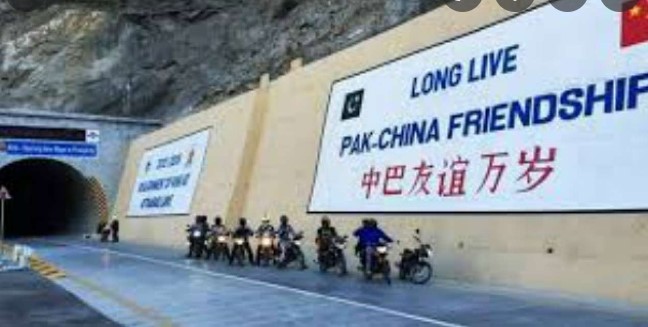Virendra Pandit
New Delhi: That a broke Pakistan was fast becoming a client state of China was known for a long time. Now, with its renewed demand to deploy Chinese troops in the South Asian nation, Beijing may have taken the first step to colonize its “all-weather friend.”
According to the media reports, China is even offering “USD 40 to 50 billion” to Pakistan to allow its military outposts.
This has put Pakistan in a tight spot. To control potential damage, its Foreign Minister Bilawal Bhutto said Islamabad will allow no one to harm the “iron-clad China-Pakistan ties,”, the media reported on Monday.
This is not the first time China is pushing to deploy its armed forces in Pakistan, ostensibly to protect its nationals and projects under the USD 60 billion China-Pakistan Economic Corridor (CPEC).
This time, however, the demand has come from the top. Beijing has pushed its demand through its top diplomat Yang Jiechi who recently visited Islamabad, the reports said.
Yang is a senior member of the Political Bureau of the Central Committee of the Communist Party of China (CPC). As the Director of the Central Committee on Foreign Affairs, they have also known him as the Xi Jinping regime’s top troubleshooter. He is viewed as the architect of Beijing’s 21st-century foreign policy and reports directly to Chinese President Xi Jinping.
According to the media reports, Yang’s aim for his Islamabad visit was to convince the Pakistani leadership that it needed Chinese outposts in the country as Beijing is concerned over the safety of its officials and assets of the CPEC projects, which are being attacked by the Baluch militants.
They also reported him to have offered Pakistan USD 40-50 billion for agreeing to allow Chinese military outposts.
The Baluch attacks have slowed down work on the CPEC projects, Yang reportedly told Pakistan Army chief General Qamar Javed Bajwa and submitted Beijing’s suggestions to improve the security situation.
In May, the Pakistani police arrested a suicide bomber while she was planning to blow herself up near a convoy of Chinese nationals along the CPEC. A couple of weeks before this arrest, another woman suicide bomber blew herself up on the Karachi University campus, killing three Chinese teachers and their Pakistani driver.
Balochistan houses a deep-water port in Gwadar city, which Beijing is developing as a key port under the CPEC, the flagship project of the USD 200 billion Belt and Road Initiative (BRI).
The Baloch separatists, who are fighting for decades for a greater share in regional mine and mineral resources, have been attacking gas plants, infrastructure, security forces, and other Chinese interests. They believe China has occupied their land and resources in the guise of development.
The reports said, in the first phase of this plan, Yang pushed for Chinese military outposts for the safety of Gwadar’s Economic Zone I and II in Balochistan. Despite Beijing investing over USD 60 billion, he said, the CPEC projects remain incomplete and that international trade via Gwadar is yet to start.
Yang Jiechi held separate meetings with Prime Minister Shehbaz Sharif, Foreign Minister Bilawal Bhutto Zardari, and the Army chief General Bajwa.

